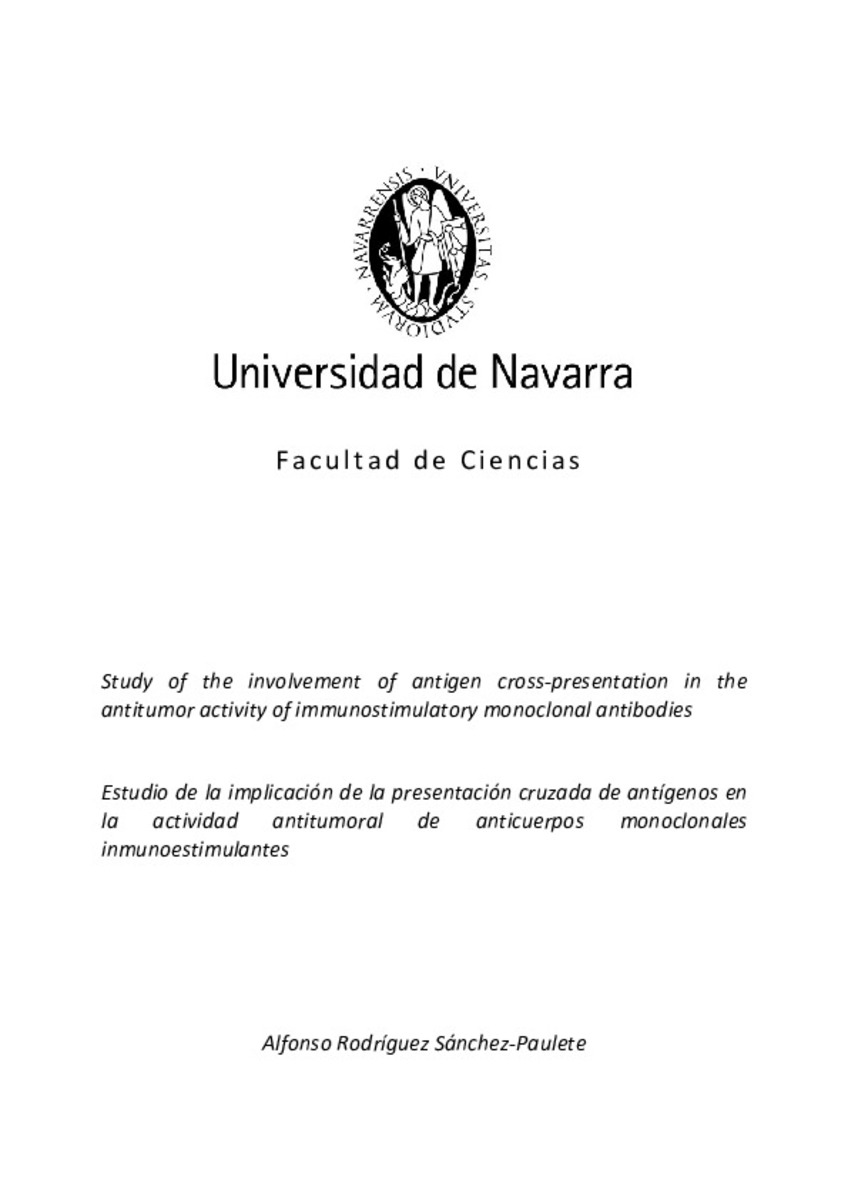Estudio de la implicación de la presentación cruzada de antígenos en la actividad antitumoral de anticuerpos monoclonales
Otros títulos :
Study of the involvement of antigen cross-presentation in the antitumor activity of immunostimulatory monoclonal antibodies
Palabras clave :
Materias Investigacion::Ciencias de la Salud::Inmunología
Oncología clínica
Presentación cruzada de antígenos
Antigen cross-presentation
Anticuerpos monoclonales inmunoestimulantes
Immunostimulatory monoclonal antibodies
Cancer immunity
Cancer immunotherapy
Intratumoral immunotherapy
Fecha de publicación :
20-ene-2022
Fecha de la defensa:
26-abr-2018
Editorial :
Universidad de Navarra
Cita:
RODRÍGUEZ, Alfonso. "Estudio de la implicación de la presentación cruzada de antígenos en la actividad antitumoral de anticuerpos monoclonales". Melero, I. (dir.). Tesis doctoral. Universidad de Navarra, Pamplona, 2018.
Aparece en las colecciones:
Estadísticas e impacto
0 citas en

0 citas en

Los ítems de Dadun están protegidos por copyright, con todos los derechos reservados, a menos que se indique lo contrario.








